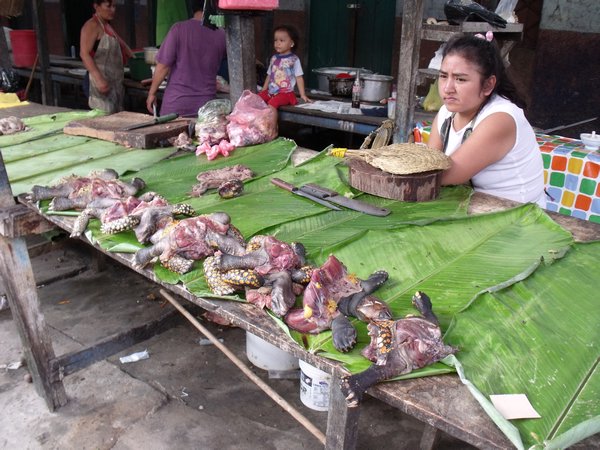Turtle Meat is a healthy and delicious protein source that can help you stay full and increase your energy levels. It is also low in calories, making it an excellent choice for people who are trying to lose weight.
Turtle meat is rich in calcium and manganese, which are critical minerals for bone health. It is also a good source of iron.
Overview of eating Turtle Meat
Turtle meat is an excellent source of protein. It can help build muscle, boost energy levels and strengthen your immune system. It is also a good source of iron and calcium.
However, it is important to be aware of the health risks associated with consuming turtle meat. It can contain toxins and bacteria that may lead to foodborne illnesses. It is therefore advisable to consult with a healthcare professional before eating it.
Culinary uses
Turtle meat is often used in soups and stews. The most popular part of a turtle is the neck, which has a beefy flavor that’s delicious in soup and Cajun recipes like sauce piquant.
The rest of the turtle can also be eaten, including the liver, heart, windpipe, esophagus, pancreas and lungs. This meat is often considered a delicacy.
While turtle meat is considered rare, it still makes appearances on the menus of many restaurants across the country and around the world. The meat has a rich, deep flavor and is highly nutritious.
Availability
Turtle meat is rare and hard to find, but it’s still a great option for special occasions. You can use it to make gumbo, soup, sauces, nuggets, and other dishes.
The taste of a freshwater snapping turtle is similar to frog legs or lobster. It can also taste like beef or veal, depending on how it’s prepared.
Sea turtle meat is more available in rural areas than urban ones, with more than half of rural respondents stating they had easy access. This may indicate that the trade is localized and informal.
Market trends
While freshwater turtles have been a staple of Asian diets since the 16th century, unrestricted harvesting has caused significant pressure on wild populations. China has overtaken the United States in terms of turtle consumption as food, and freshwater turtle farming is becoming a viable aquaculture business in Southeast Asia.
While egg consumption is a relatively small part of the overall turtle meat market, it does play an important role in rural communities and should be prioritized for conservation efforts in those locations. We found that respondents’ occupations played an important role in determining whether they consumed eggs or not (Figure 3).
Health benefits
Turtle meat is a healthy protein source that is low in fat and contains iron and calcium. It also helps boost energy levels and keep your immune system strong.
Nevertheless, it is important to cook the meat properly and avoid eating raw or undercooked turtle meat. It may contain toxins that can cause health problems.
Because turtles are carnivores, they often ingest pollutants and contaminants from the environment. These toxins can then accumulate in the turtle’s flesh and can lead to illnesses.
Concerns
Turtle meat can contain heavy metals such as lead, cadmium, and arsenic that can be harmful to humans. This is especially true of green sea turtles, which graze on coastal sediments that contain these metals (Ross et al. 2017).
While the harvesting of turtles is an important source of income for many local communities, it’s also raising concerns about sustainability. This type of commercial harvest has the potential to drastically impact populations in the wild, which could negatively impact their survival.

